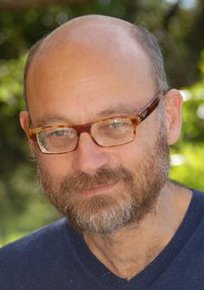2006-2007 Lecture Series

Joshua Cohen
Professor of Political Science, Philosophy, and Law
Stanford University
Power, Reason, and Politics
Lecture I: On Public Reason
Tuesday, April 10, 2007
4:10 p.m. – 6:30 p.m., Toll Room, Alumni House
With commentary by Charles Larmore
Lecture II: Democracy’s Public Reason, Global Public Reason
Wednesday, April 11, 2007
4:10 p.m. – 6:30 p.m., Toll Room, Alumni House
With commentary by Elizabeth S. Anderson and Avishai Margalit
Seminar and Discussion with commentators
Thursday, April 12, 2007
4:10 p.m. – 6:30 p.m., Toll Room, Alumni House
With commentary by Charles Larmore, Elizabeth S. Anderson, and Avishai Margalit
The lectures and the seminar are free and open to the public.
Download and Listen
MP3 Format: Lecture One, Lecture Two, Seminar & Discussion
About Joshua Cohen
Joshua Cohen is a renowned political theorist trained in philosophy. He specializes in democratic theory and its implications for personal liberty, freedom of expression, electoral finance, and new forms of democratic participation. Cohen is currently working on questions of global justice, including the foundations of human rights, distributive fairness, and supra-national democratic governance. He is the director of the Program on Global Justice and professor of political science, philosophy, and law at Stanford University.
Cohen’s many publications on political philosophy include several written with University of Michigan law professor Joel Rogers: On Democracy (1983);Inequity and Intervention: The Federal Budget and Central America (1986);Rules of the Game (1986); and Associations and Democracy (1995). His collected papers are forthcoming from Harvard University Press, and A Free Community of Equals: Rousseau on Democracy is forthcoming from Oxford University Press. Since 1991, Cohen has also been editor of Boston Review, a bi-monthly political, cultural, and literary magazine. He is a fellow of the American Academy of Arts and Sciences, and among his many honors are the Harold E. Edgerton Award, the highest honor given to young faculty at M.I.T., the James and Ruth Levitan Prize in the Humanities, multiple teaching awards from M.I.T., and the Carlyle Professorship at Oxford University in 1999.
Born in Brookline, Massachusetts in 1951, Cohen received both his B.A. and M.A. in philosophy from Yale University in 1973, and went on to earn a Ph.D. in philosophy from Harvard University in 1979. He began teaching philosophy and political science at the Massachusetts Institute of Technology in 1977, where he was Goldberg Professor of the Humanities. In 2006, Cohen moved to Stanford University, where he is professor of political science, philosophy, and law, and director of the Program on Global Justice.
About the Commentators
Charles Larmore
W. Duncan MacMillan Professor in the Humanities
Brown University
Charles Larmore, a distinguished scholar of moral and political philosophy, specializes in the history of ethics and romanticism and their influence upon contemporary political thought. He has argued that the pulse of romanticism continues to beat in modern ideas of the self, and its influence can be found in the arts, philosophy, and politics. He also explores the foundations of modern political liberalism.
Larmore has authored important articles and books in several languages, and serves on the editorial boards of journals in the U.S. and overseas, including the publication Ethics (since 2000). His books, which include Patterns of Moral Complexity (1987), The Romantic Legacy (1996), and The Morals of Modernity(1996), and Les pratiques du moi (2004) offer interdisciplinary, trans-historical arguments.
Recently appointed the W. Duncan MacMillan Professor in the Humanities at Brown University (2006), Larmore teaches in the philosophy department. Before coming to Brown, he taught at the University of Chicago for 9 years, and before that at Columbia University for nearly 20 years. He earned his B.A. in classics and philosophy from Harvard University in 1972, and his Ph.D. in philosophy from Yale University in 1978.
Elizabeth S. Anderson
John Rawls Collegiate Professor of Philosophy and Women’s Studies
University of Michigan
Elizabeth Anderson is renowned for her scholarship in democratic theory, ethics and economics, feminist epistemology, and the philosophy of science. She has developed new accounts of the philosophical roots of American democracy, and argued that its central principles, such as equality, may be compromised by “economistic” reasoning in contemporary social policy.
Anderson is the author of Value in Ethics and in Economics (1993), which analyzes controversial applications of market values to various domains of social life, from surrogate motherhood to environmental protection. She is currently writing a book on the ideal of integration in democratic theory, paying special attention to African Americans and Latinos in the United States, and Muslims in Europe.
Anderson is the John Rawls Collegiate Professor of Philosophy and Women’s Studies at the University of Michigan, Ann Arbor. She received her B.A. in philosophy, with a minor in economics, from Swarthmore College (1981), and her M.A. (1984) and Ph.D. (1987) in philosophy from Harvard University.
Avishai Margalit
George Kennan Professor at the Institute for Advanced Study
Princeton
Avishai Margalit is a leading scholar of social and political philosophy and a prominent voice in current sociopolitical debate. He has contributed valued perspectives on such divisive concerns as global terrorism and the potential incompatibility of peace and justice. In 1978, he co-founded the Israeli citizen’s movement Peace Now, which continues to initiate crucial reconciliation efforts in the Middle East.
Margalit has published prolifically in philosophical journals and contributes frequently to the New York Review of Books. His own books include Idolatry(with Moshe Halbertal, 1991), The Decent Society (1998), The Ethics of Memory(2002), and Occidentalism: The West in the Eyes of Its Enemies (with Ian Buruma, 2004).
Hebrew University of Jerusalem has served as Margalit’s home institution for over 40 years. He received his B.A. in philosophy and economics in 1963, his M.A. in philosophy in 1965, and his Ph.D. in 1970, and has taught at Hebrew University since. Margalit is currently Schulman Professor of Philosophy. He also travels widely as a visiting professor, lecturer, and research fellow, most recently as George F. Kennan Professor in the School of Historical Studies at Princeton’s Institute for Advanced Study (2006-08).